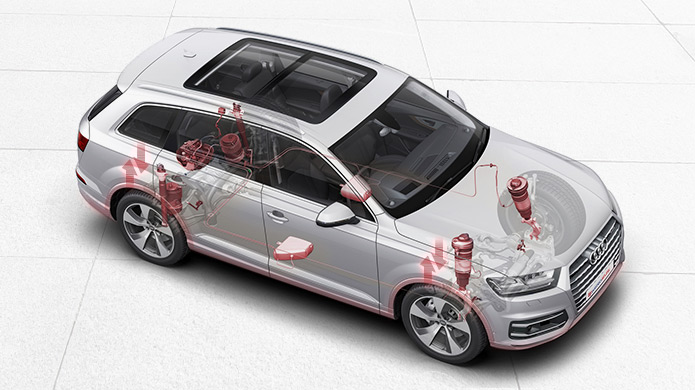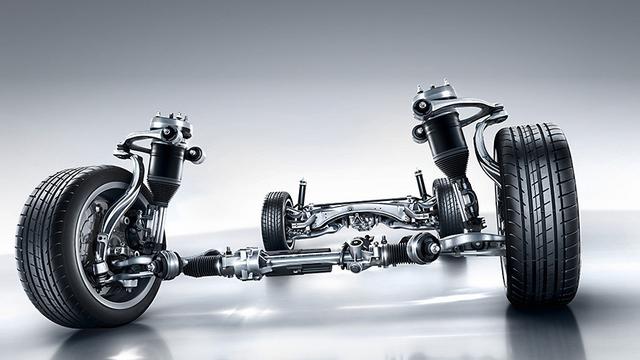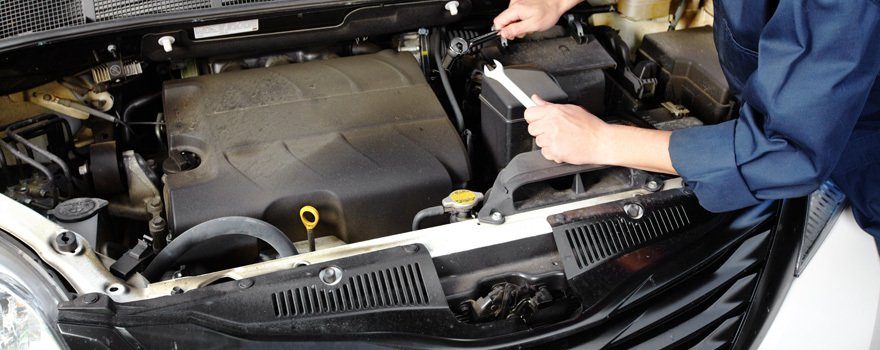When it comes to upgrading your vehicle, enhancing both performance and comfort is key. One modification that has gained popularity in recent years is the installation of an air suspension system. Unlike traditional coil or leaf spring setups, air suspension systems offer flexibility, improved handling, and a smoother ride. With the ability to adjust to the perfect car height, air suspension can enhance both your daily driving experience and your vehicle’s off-road capabilities. Understanding air suspension can help you make an informed decision about this transformative upgrade.
Table of Contents
What is Air Suspension?
Air suspension is a vehicle modification that replaces traditional springs with air-filled bags, or air springs, controlled by an onboard air compressor and height sensors. These air springs can be inflated or deflated to adjust the ride height and stiffness, providing a customizable driving experience.
Air suspension was originally developed for commercial trucks and buses to improve load management and ride comfort. Today, it’s a popular upgrade in passenger vehicles, including sedans, trucks, and SUVs, for drivers seeking enhanced performance and comfort.
How Air Suspension Works
Air suspension systems use an air compressor, air springs, and electronic controls to maintain optimal ride height and comfort. The compressor pumps air into the air springs, which are made from durable rubber and are positioned at each wheel. Height sensors monitor the vehicle’s stance, adjusting air levels to keep the vehicle balanced and aligned.
Key Components of an Air Suspension System:
- Air Springs: These are the core of the system and replace the traditional metal springs. They are inflated or deflated to adjust the vehicle’s height and absorb shocks.
- Air Compressor: The compressor supplies air to the air springs and adjusts the air pressure to ensure the correct suspension height.
- Height Sensors: These sensors detect changes in the vehicle’s position and trigger adjustments to maintain proper ride height.
- Control Module: This electronic system processes data from the sensors and manages the compressor and air springs to maintain optimal suspension performance.
Performance Benefits of Air Suspension
Air suspension systems offer a range of benefits that improve both the performance and versatility of your vehicle. Whether you’re driving on city streets or tackling rough terrain, air suspension can enhance your vehicle’s capabilities in ways that traditional suspensions cannot.
Improved Handling and Stability
One of the most significant advantages of air suspension is its ability to improve vehicle handling and stability. The adjustable ride height allows for better aerodynamics at higher speeds, which can reduce body roll and improve cornering.
Fun Fact: Some high-performance sports cars, including luxury brands like Mercedes-Benz and Porsche, come equipped with air suspension systems to optimize performance during high-speed driving.
Enhanced Comfort
Air suspension systems provide a smoother, more comfortable ride by absorbing road imperfections and reducing vibrations. This is particularly noticeable when driving on rough terrain or uneven surfaces, where traditional suspensions might struggle to keep the ride smooth.
With air suspension, you can adjust the stiffness of the ride to suit your comfort preferences. Whether you prefer a cushioned, luxurious ride or a firmer, sportier feel, air suspension offers the flexibility to cater to your needs.
Customizing Your Driving Experience
One of the standout features of air suspension systems is the ability to customize your driving experience. Whether you’re adjusting the ride height for better ground clearance or optimizing your vehicle’s stance for improved handling, air suspension provides unparalleled flexibility.
Benefits of Adjustable Ride Height:
- Improved Off-Road Capabilities: Air suspension can raise the vehicle for greater ground clearance, making it easier to navigate rocky or uneven terrain.
- Lower Stance for Performance: Lowering the ride height improves the vehicle’s aerodynamics and stability at higher speeds, ideal for performance driving.
- Adaptability to Load: Air suspension can adjust to the weight of the vehicle’s load, keeping it balanced whether you’re carrying passengers or hauling heavy cargo.
Fun Fact: Air suspension systems are not just popular in off-road vehicles; they are also widely used in lowriders, allowing for extreme adjustments to the vehicle’s ride height.
Long-Term Benefits of Air Suspension

While air suspension systems require an initial investment, the long-term benefits can make them a worthwhile upgrade. In addition to improved comfort and performance, air suspension can enhance the durability of your vehicle by reducing wear and tear on key components.
Longevity of Vehicle Components
Air suspension reduces the strain on the vehicle’s suspension system by evenly distributing weight and minimizing shocks from rough roads. This can help extend the life of other suspension components, such as the control arms, shock absorbers, and bushings.
Additionally, the system’s ability to adjust for load-bearing means that air suspension can prevent sagging, a common issue in vehicles that carry heavy cargo or tow trailers regularly.
Fun Fact: Air Suspension Helps Commercial Vehicles Save Fuel
Air suspension systems are widely used in commercial trucks because they improve aerodynamics by lowering the vehicle at highway speeds, which can lead to better fuel efficiency.
Maintenance Considerations
While air suspension offers many benefits, it’s important to understand that it requires regular maintenance to ensure longevity and optimal performance. The air springs and compressor are durable, but they can wear out over time, especially if exposed to harsh conditions.
Tips for Maintaining an Air Suspension System:
- Check Air Springs Regularly: Inspect the air springs for signs of wear, such as cracks or leaks. Replacing damaged air springs promptly can prevent further damage to the system.
- Monitor Air Pressure: Keeping an eye on the system’s air pressure can help identify issues early. A sudden drop in pressure may indicate a leak or malfunction.
- Service the Compressor: The air compressor works hard to maintain proper air levels in the springs. Ensuring it is serviced regularly can extend its life and keep your suspension system running smoothly.
Fun Fact: Air Suspension is Common in Luxury Cars

Many luxury car manufacturers use air suspension systems in their flagship models to provide a superior driving experience. Vehicles like the Rolls-Royce Phantom and Bentley Bentayga offer air suspension as standard to deliver the ultimate in comfort and performance.
Air suspension systems offer a unique combination of performance, comfort, and customization that traditional suspensions can’t match. Whether you’re looking to enhance your vehicle’s handling, improve off-road capabilities, or simply enjoy a smoother ride, air suspension provides the flexibility to meet your needs.
For drivers seeking a more comfortable, customizable, and performance-oriented ride, air suspension could be the perfect upgrade. While it does require some maintenance, the long-term benefits can make it a valuable investment in your vehicle’s overall performance and longevity. So, if you’re ready to elevate your driving experience, consider installing an air suspension system to take your vehicle to the next level.
Also Read: Mastering Home Cleanliness: Expert Tips for a Pristine Living Space.
